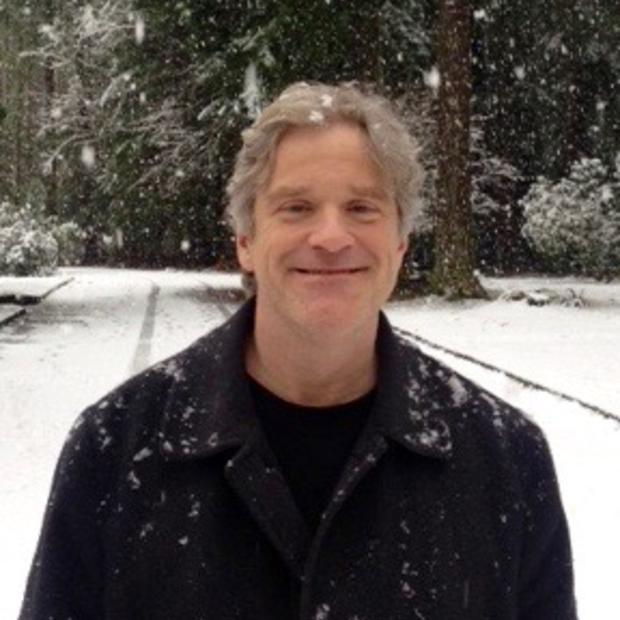The late historian Arthur M. Schlesinger, Jr, who coined the misapplied term "the vital center," was referring to "the contest between democracy and totalitarianism, not to contests within democracy, between liberalism and conservatism, not at all to the so-called 'middle of the road' preferred by cautious politicians of our own time. The middle of the road is definitely not the vital center: it is the dead center," Schlesinger wrote.
Independent voters notwithstanding, that "dead center" seems lifeless in the Northwest. As the Seattle Times Danny Westneat writes, the timing for a "third way" movement couldn't be better, especially with public approval for the political class in the tank. "'Americans Express Historic Negativity Toward U.S. Government,' was how Gallup put it, finding that 81 percent are fed up with the way the country is governed. So you'd think this would be an ideal time to jostle the system. To talk about a third party, maybe," Westneat writes.
"Kristie Tice sure thought so. She's a 22-year-old senior at University of Puget Sound. When she heard about Americans Elect — a group of 'radical centrists' who want to put a third candidate in the presidential race next year — she was thrilled." If only "radical centrist" wasn't an oxymoron. Kristie Tice's inspired effort to whip up campus support for Americans Elect proved fruitless.
Maybe it merits a resigned, Yeats-ish admonition that "The best lack all conviction, while the worst/Are full of passionate intensity." Or maybe the "third way" is more about governing than a grassroots political movement. Either way, as Westneat notes, "You can't have a 'let the people in' revolution without any people."
The Everett Herald's Jerry Cornfield offers a sober assessment of the special legislative session that begins today. Consider an Olympia version of the failed supercommittee: Full of sound and fury, signifying impasse. "Democrats say they will be focused on solving the problem by not only trimming government spending, but also raising new tax revenue," Cornfield writes.
"Republicans are equally committed to opposing new or higher taxes and will fight to bridge the gap solely by spending less. With prospects for a sustained clash, members in both parties are tamping down expectations of what will be accomplished in the session, which could last a month." Washington may need additional revenue, but why something as regressive as a sales tax? Why not a more sustainable and fairer revenue stream like a capital-gains tax? Whatever the outcome, some quid pro quos will be required.
Cornfield quotes the always candid, iconoclastic Hans Dunshee, a Democratic state representative from Snohomish. "If I was going to handicap it, the odds are long that anything gets done. It's not pivotal anything get done. We could deal with the budget problem in January." As with the supercommittee, a failed special session seems realistic but politically untenable. The masses will rise up and demand leadership, yes? Or will we be too busy Christmas shopping?
The Los Angeles Times' Carol J. Williams examines the death penalty in light of Oregon Gov. John Kitzhaber's decision to declare a moratorium on all executions for the remainder of his term. It is a complex issue. For example, what does it mean if, like California's serial wife-killer Jerry Stanley, a condemned prisoner accepts his fate? Does that make him mentally ill? "One of 718 prisoners on California's death row, Stanley has renewed an ethical debate among legal experts about whether a condemned prisoner who drops resistance to execution has been driven insane by his confinement or has accepted his fate and should be allowed a dignified end," Williams writes.
The question underlines the arbitrary and often contradictory nature of the death penalty. "Since the modern era of capital punishment began with the 1977 execution of Gary Gilmore in Utah, civil rights advocates and death penalty supporters have debated whether a state would run afoul of laws prohibiting execution of the mentally ill if they bow to a condemned inmate's suicidal impulse," Williams writes. Paging George Orwell . . .
Imagine a Northwest university where the faculty and students appear to love their president. It runs counter to the received wisdom, but as the Oregonian's Kelly House reports, Richard Lariviere, the University of Oregon's president since 2009, is likely to be ousted by the state Board of Higher Education later today. "The university community, including fans and players at Saturday's Civil War game, reacted angrily to the news."
"Nearly 60 faculty members signed a complaint to the state ethics commission, claiming the Board of Higher Education violated open meetings laws by pre-determining Lariviere's fate before voting in a public meeting, now scheduled for Monday," House writes. What's the problem? It seems Lariviere is too much of an independent player, lobbying for University of Oregon autonomy and granting raises in spite of state spending freezes.
Lastly, if Baby Boomers stir up grief on occasion, there is reason for hope with the Millennials (those born after 1981). The Seattle Times Lance Dickie offers an appreciation. "They have the implicit conceits about what makes them special: music and fashion. But they are also more liberal, more accepting and pretty damn smart," Dickie writes. It (gulp) makes Millennials sound an awful lot like Boomers.
Link Summary
Seattle Times, "Few heed the call for a moderates' rebellion"
Everett Herald, "Legislature's special session could get ugly over budget"
Los Angeles Times, "Death-row inmate's desire to die renews debate"
The Oregonian, "University of Oregon community rallies in support of its president"
Seattle Times, "Millennials: You're invited to join the fray, shape your political future"


